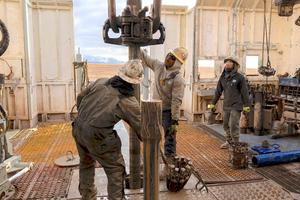A federal judge in California has dismissed lawsuits by Oakland and San Francisco against five major oil companies for their role in driving climate change, according to several news outlets. The decision is the first significant blow to the surge in climate liability lawsuits filed by communities and individuals across the United States in recent years.
In his 16-page decision, published yesterday, Judge William Alsup said that global warming is too large an issue to hold just five companies — BP, Chevron, ConocoPhillips, Exxon Mobil, and Royal Dutch Shell, the defendants in the case — accountable. Solving climate change, he said, should be left to the executive and legislative branches of government, not to the court system.
“Our industrial revolution and the development of our modern world has literally been fueled by oil and coal,” Alsup wrote. “Without those fuels, virtually all of our monumental progress would have been impossible. All of us have benefitted. Having reaped the benefit of that historic progress, would it really be fair to now ignore our own responsibility in the use of fossil fuels and place the blame for global warming on those who supplied what we demanded? Is it really fair, in light of those benefits, to say the sale of fossil fuels was unreasonable?
“Nuisance suits in various United States judicial districts regarding conduct worldwide are far less likely to solve the problem and, indeed, could interfere with reaching a worldwide consensus. The problem deserves a solution on a more vast scale than can be supplied by a district judge or jury in a public nuisance case.”
John Coté, press secretary for the San Francisco City Attorney’s Office, told Climate Liability News that the city is reviewing Alsup’s order and will decide next steps in the coming days. If the city chooses to appeal the decision, the case would move next to the Ninth Circuit Court of Appeals.
Climate lawsuits filed by 11 other U.S. communities are still pending in federal and state courts across the country.


